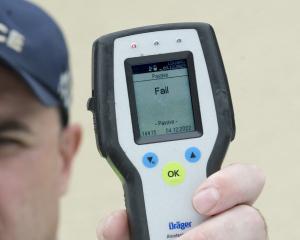University of Otago graduate Brad Sutherland, a research fellow at the University of Oxford, tells reporter Eileen Goodwin about the next step in his career.
The world of stroke research has advanced markedly in recent years while Dr Brad Sutherland's research career has flourished at the University of Oxford.
His time in the fabled city of dreaming spires is almost up.
In April he will head to Australia, to the University of Tasmania, to build a stroke research team. Dr Sutherland (34) did not have the smoothest path to his promising career because of the death of supervisor Dr Ian Appleton during his PhD study at the University of Otago.
As a consequence, Dr Sutherland slowed his PhD, picking up Dr Appleton's teaching work to help the university after the loss of the senior lecturer.
It meant juggling work as a teaching fellow with PhD study.
It also meant a later graduation than expected for Dr Sutherland, who had attended Dr Appleton's funeral in 2007 in England, as the university's representative.
"It was very tough.''
He said his PhD research would be remembered as the last active research of Dr Appleton.
In 2009, Dr Sutherland took up a post-doctoral research fellowship at the Nuffield Department of Clinical Medicine at Oxford, where his research career has taken off.
He was excited about his participation in research discovering the effects on capillaries after a stroke.
They clamped down, impeding the flow of glucose and oxygen, but this was overlooked because of the focus on the main arterial blockage.
Now, the challenge was finding a drug therapy or something else to keep them open.
He had also been involved in research investigating new MRI techniques to determine how much of the brain is salvageable after a stroke, and investigating a particular pathway in the brain that could be utilised to help the brain repair itself after a stroke.
It comes amid a time of rapid change in stroke treatment, in particular the emergence of a surgical procedure being introduced to remove the blood clot in the hours following a stroke.
"Two thousand and fifteen was a big year for stroke.''
Thrombectomy was already offered in 10 hospitals in the United Kingdom, but posed a big challenge in respect of cost and surgical resources, he said.
There was also much interest in the prospect of hypothermia treatment as a therapy for stroke.
His interest was partly spurred by the sudden death of his grandfather from stroke.
While his grandfather had died suddenly, many sufferers lived on after the trauma of stroke but with severe disability.
His research mainly concerns reducing the impact of stroke on the sufferer, and learning more about how the brain works to make that possible.
"We are just touching the surface in terms of what we understand [about the brain].''
"Even though it's just this little organ at the top of our head, it's mind-blowing how it works.''
Dr Sutherland started university with an open mind about where his studies would lead.
After taking first-year health sciences, he decided to study pharmacology and biochemistry, attaining first-class honours in his bachelor of science degree.
His PhD focused on a set of enzymes and examined how they could be manipulated to limit brain damage after a stroke.
It was awarded the distinction of "exceptional thesis'' by the division of health sciences.
Despite having grown up just 20 minutes driving distance apart, Dr Sutherland, of Invercargill, and his wife Karen (nee Young), of Winton, met for the first time during their first week of university in 2000.
They lived at Arana College for their first year, and went on to study PhDs. Karen's field is clinical psychology.
His favourite memory of university was his year at Arana, where he made the friendships that set up the rest of his time at university.
The couple have two young children, Sophie (3) and Olivia (1).
The family is moving to Hobart, after Dr Sutherland was approached by the school of medicine at the University of Tasmania.
He will take a tenured appointment as senior research fellow.
Working with stroke scientist Prof David Howells, he will build a stroke research team, as the medical school has decided it wants to put resources into that area of research.
"I will miss Oxford. It's been really good to me,'' he said.
While at Oxford he had made connections with researchers all over the world, particularly in the field of stroke, but also others.
Brad Sutherland
Degrees: University of Otago bachelor of science (hons) in the department of pharmacology and toxicity, graduated 2004; PhD in department of pharmacology and toxicity, graduated 2009.
Career path: University of Otago teaching fellow; University of Oxford research fellowship. Newly appointed as senior research fellow at University of Tasmania (from April 2016).
Favourite memory of living in Otago: The camaraderie of living in hall of residence in the first year of university.











